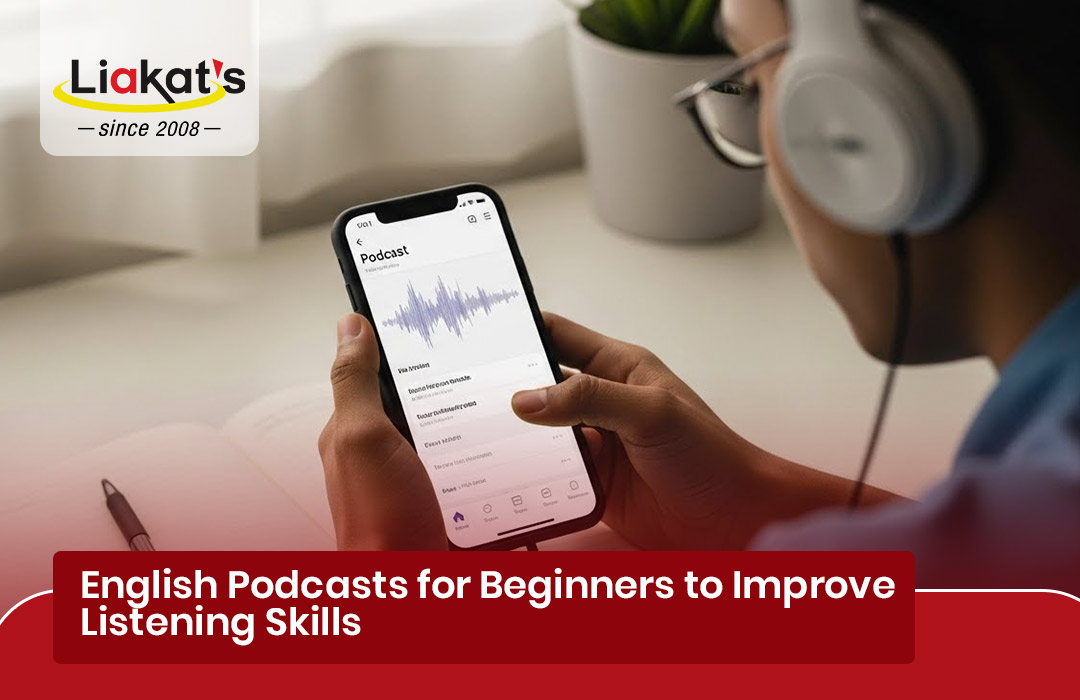The right strategies and consistent practice can improve your IELTS Listening raw score in just a month. This guide will lead you through key techniques, Tips, and tools to help you improve your overall band score quickly. Whether you’re a beginner or have already started your preparation, this article will give you the edge you need to succeed.
IELTS Listening Score Test Format: You Need to Know
Understanding the IELTS Listening test format is crucial for achieving a high IELTS score. The test consists of four sections, each with a specific type of listening task:
- Section 1: A conversation between two people in a social setting.
- Section 2: A monologue on a social or practical subject.
- Section 3: A conversation in an academic or training context, often involving multiple speakers.
- Section 4: A monologue on an academic topic.
Each section becomes progressively more difficult, and you will hear the recordings only once. The total listening time is 30 minutes, with 10 additional minutes to transfer your answers to the answer sheet.
Common Mistakes in IELTS Listening and How to Avoid Them
Many candidates make avoidable mistakes in the IELTS Listening test. Here are some of the most common errors and how you can avoid them:
- Not reading the questions carefully: Always read the questions before the recording starts. This helps you identify key information.
- Not managing time effectively: Keep track of time to avoid rushing during the IELTS test. Practice under timed conditions
- Focusing too much on every word: Listening to the main ideas is essential rather than trying to understand every word and focus on keywords.
- Not practicing with different accents: IELTS features various accents, so listen to recordings from different regions to prepare for all possibilities.
Effective Listening Strategies for IELTS Success
To improve your IELTS Listening band score, employ these strategies:
- Practice active listening: Engage with different listening materials such as podcasts, news reports, and TED talks. Actively listen to capture the meaning and context.
- Use varied listening sources: Mix your practice with materials from diverse accents and topics to get accustomed to different speaking speeds and vocabularies.
- Take notes while listening: Writing down important points during the recording will help you answer questions more accurately.
How to Practice IELTS Listening Every Day
Consistent practice is essential for increasing your IELTS Listening band score. Set aside at least 30 minutes every day to practice listening. Here’s how you can structure your practice:
- Listen to recordings: Try listening to different formats such as interviews, news broadcasts, and educational podcasts.
- Review your mistakes: After listening, review your answers and identify mistakes. Learn from them to avoid making the same errors.
- Simulate test conditions: Practice with full-length listening tests to get used to the timing and pressure of the real exam.
Using IELTS Listening Practice Tests to Boost Your Score
Practice tests are among the best ways to boost your IELTS Listening band score. These tests familiarize you with the format and help you build stamina and improve your performance. Here’s how to use practice tests effectively:
- Start with easier tests: Begin with tests slightly below your target level to build confidence.
- Gradually increase the difficulty: As you improve, move on to harder tests to challenge yourself and push your limits.
- Review your answers: Analyze your mistakes to identify patterns and focus on weak areas during your next practice session.
Manage Your Time During the IELTS Listening Test
Planning your time is important for the IELTS Listening test. Here’s how to efficiently manage your time:
- Practice reading questions before listening: Take 30 seconds before each section to skim through the questions and identify keywords.
- Don’t dwell on missed answers: If you miss an answer, move on and focus on the next question. Stay calm and focused throughout the IELTS test.
Improve Vocabulary for the IELTS Listening Section
A rich vocabulary helps you understand various accents and contexts during the Listening test. To improve your vocabulary:
- Listen to diverse content: Exposure to different topics, such as IELTS academic lectures, social discussions, and everyday conversations, will improve your vocabulary.
- Use flashcards: Write down new words or phrases you hear during practice and review them regularly to reinforce your memory.
Handle Different Question Types in IELTS Listening
IELTS Listening includes a range of question types, such as multiple-choice, matching, and filling in blanks. Here’s how to approach them:
- Multiple-choice questions: Eliminate obvious incorrect answers and focus on the key details from the listening passage.
- Matching questions: Look for specific phrases or names mentioned in the recording that will guide you to the correct answers.
- Completion tasks: Focus on the numbers, dates, and other specific information often mentioned in these questions.
Stay Calm and Focused During the Listening Test
Stress can hinder your ability to concentrate during the IELTS test. To stay calm:
- Practice relaxation techniques: Deep breathing and focusing on the present moment can help you stay composed.
- Get enough rest: Ensure you have a full night’s sleep before the IELTS test, as being well-rested will help you focus and think clearly.
Conclusion
Improving your IELTS band score in a month is feasible with consistent practice and effective strategies. Understanding the IELTS test format, avoiding common mistakes, managing your time, and practicing daily will significantly boost your listening skills. Use practice tests, expand your vocabulary, and stay calm under pressure for optimal performance.
Frequently Asked Questions:
How to improve IELTS Listening overall score in one month?
Regular practice with various listening materials and mock tests, focusing on time management and key strategies, is the best way to improve your band score.
What is the IELTS Listening test format?
The test consists of four sections: two conversations, one discussion, and one monologue.
How can I avoid common mistakes in IELTS Listening?
Focus on reading questions before the test, managing your time effectively, and practicing listening with different accents.
What’s the best way to practice listening to IELTS Listening score every day?
Set aside at least 30 minutes a day to practice listening. Use online tests, podcasts, and real-life audio materials to expose yourself to various accents and topics.
Can practice tests boost my band score?
Yes, practice exams help you become comfortable with the test format, develop strength, and identify areas for growth.
How do I manage time during the Official IELTS Listening test?
Read the questions before each section, don’t spend too much time on missed answers, and practice under timed conditions.
How do I handle multiple question types in the Listening test?
Understand the format of each question type and practice with sample questions. Use elimination strategies for multiple-choice tasks and focus on key details for matching and completing tasks.
What can I do if I get nervous during the practice test?
To stay focused on the practice test, use relaxation techniques like deep breathing and make sure you’re refreshed.
By implementing these strategies, you can see noticeable improvements in your IELTS Listening score. For more expert IELTS listening tips, visit Lia Kats.





